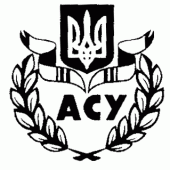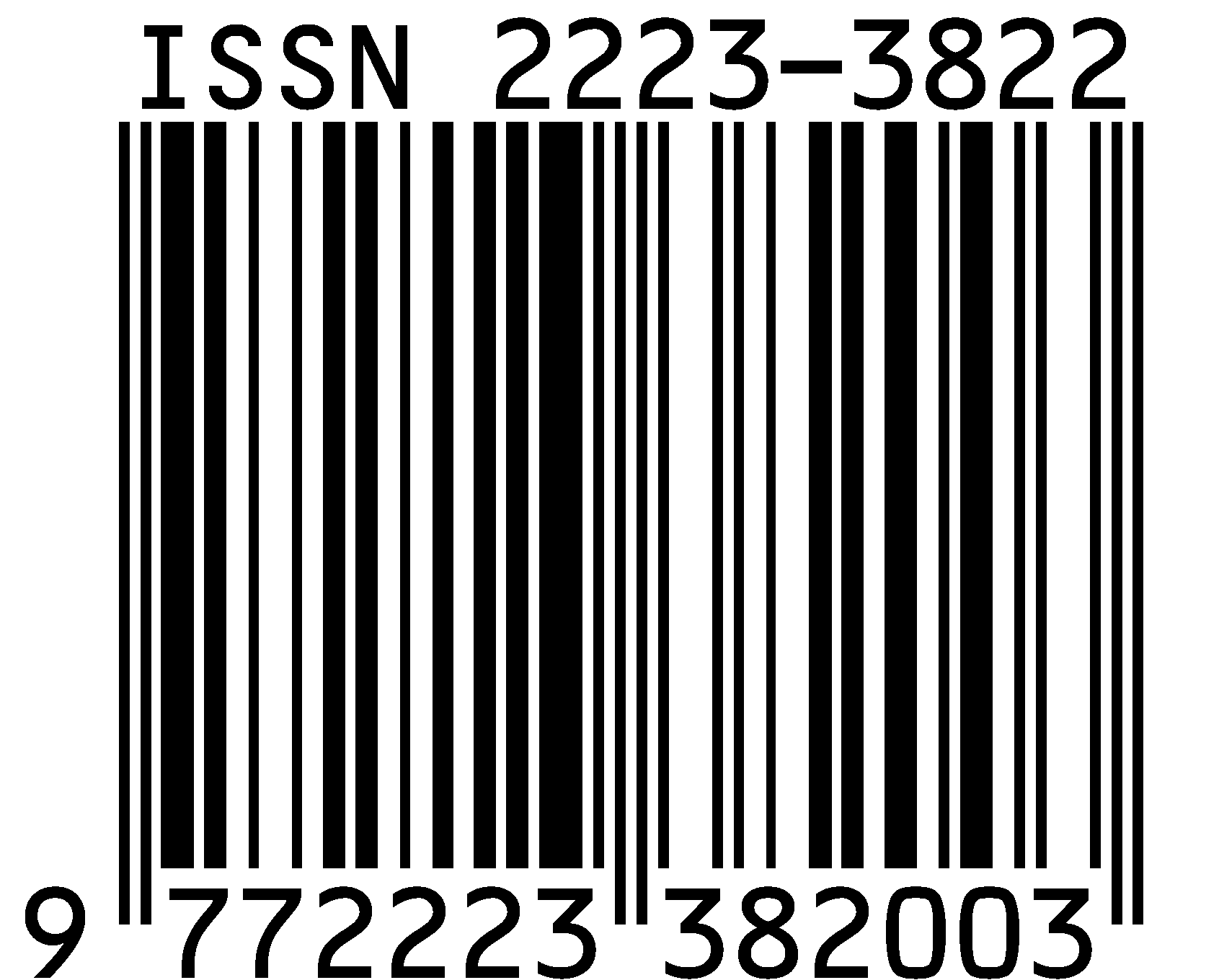Editorial policy of scientific journal:
"Socio-Economic Problems and the State" (SEPS)
(
Socìalʹno-ekonomìčnì Problemì ì Deržava)
(Socìalʹno-ekonomìčnì Problemì ì Deržava)
Basic principles of editorial policy of scientific journal "Socio-Economic Problems and the State"
Editorship of the "Socio-Economic Problems and the State" (SEPS) in political relation is a supporter of the European choice of State. In applied and scientific an methodological spheres - a follower of combination of scientific and methodical, scientific and methodological and practical aspects of scientific research. The main principles of editorial policy are: actuality, opportuneness, authenticity, validity, scientific novelty, innovation, impartiality, objectivity and practical significance of covering materials.
Summary
Articles should be accompanied by publication structured abstract, and should consist of such sections: urgency of the problem, analysis of recent research in the field of production, social life, the main material, methods, discussion and conclusions of research.
Based on the use of languages in the journal manuscripts submitted in Ukrainian, should be accompanied by summary in English and Ukrainian languages. The authors of works in English, whose native language is Ukrainian, must submit summary in this language as well.
Material thematics must correspond to scientific direction of the journal. Articles should not have the character of open or hidden advertisement (anti-advertisement). Editorship retains the right to edit materials in order to ensure compliance in grammar, spelling, stylistic and logical standards and accessibility for readers. Editorship reserves the right not to publish materials in case of their discrepancy to journals thematics, if they are preconceived, politically biased, contain false information and do not correspond generally accepted moral and ethical standards and applicable legal acts of Ukraine and EU countries.
Publication Ethics
The Editorial Board of “Socio-Economic Problems and the State” follows the rules on academic writing and academic ethics, according to the work by Miguel Roig (2003, 2006) “Avoiding plagiarism, self-plagiarism, and other questionable writing practices: A guide to ethical writing”, available online at http://www.cse.msu.edu/~alexliu/plagiarism.pdf. The Editorial Board suggests to potential contributors of the journal, reviewers and readers to dully follow this guidance in order to avoid misconceptions in academic writing. Editors will blind referee all manuscripts as will reviewers, to the guidelines explicitly highlighted by COPE http://publicationethics.org.
SEPS comes from the fact that compliance with publication ethics is important aspect of editorial and review process. Preventing such improper practices as cheating, plagiarism and other similar forms, is the responsibility of each author, editor, reviewer, publisher, and institutions involved in publishing process.
Author(s), providing material for publication automatically confirms (confirm) that the material: is given for publication for the first time and only in SEPS, is the result of own research, and any use in these materials the research of other personalities or information from other sources are completed in accordance with current legislation of Ukraine, international practice and ethical standards. Materials are accepted for publication only upon author(s)` approval for open access to the materials via Internet: through SEPS web-site, Sciencemetric Database and portals of ukrainian and foreign scientific libraries, databases.
Responsibility for selection, the accuracy of facts given in journal, quotations, statistics, dates, names, geographical names and other information, and also for disclosure of data, which are not subjected for open publication, bear(s) the author (authors) of material.
Articles cover licensed under the Creative Commons Attribution - CC-BY
The review process
Manuscripts should be submitted only in electronic (or paper) form. We observe files with *.doc or *.rtf extension, created in MSWord program or other appropriate redactors. It is important to send files to e-mail address listed at the end of each web-site page. All materials of the manuscript, including text, bibliography, tables, figures is preferably to send in one file, if these items is possible to include in files with the extension *.doc or *.rtf extension. Graphic illustrations can be inserted in manuscript file in trial version, but for further editorship can demand revised (or original) version of image file that can be subject of correspondence after the decision to publish the work.
Editorship offers authors to address editors to discuss ideas or topics before articles full text is written.
Submitted articles are considered firstly by editors in order to check whether they correspond to journals subject and its total requirements. It is assumed that this must be done within not more than one week.
Submitted articles will be sent at least to two external experts of corresponding sector to achieve first decision within three months from the date of articles presenting. Review should be double-blind, that is neither the authors nor the reviewers do not know each other names.
All materials submitted for publication undergo two-tier review system: external and internal (including secret).
The procedure of review and publication of materials:
1. Author(s) transmits (transmit) material for publication on paper medium (including by email and mail) which can be taken into consideration by editorial board only if it is with accordance with current requirements.
2. Editors send article for internal review.
3. Result of article review may be:
a) accepted for publication;
b) returned to author(s) for change, appropriate adjustments, if required by review;
c) rejected as being inconsistent with the requirements (reasons must be given in review).
4. Only after final coordination with author(s) about all questions regarding the content of material (including re-review if review required prior revision) article is accepted for publication.
5. Editorial board decides whether the article is included for publication in journal issue (number).
6. Article submitted for publication.
7. Author(s) are notified by email about the fact of publication of the next edition number.
The journal is open resource, it accepts and disposes materials according to required requirements of editorial policy and by condition of their compliance with requirements of applicable legislation of
All complaints, comments and questions about activity of scientific edition should be sent by email or regular mail.
Authorship
Authors must note the contribution of each co-authors of scientific article. This should be done in cover letter.
Authorship must be established in accordance with the following criteria: 1) author made a substantial contribution into conception and design of research, in receiving the data or its analysis and interpretation; 2) author wrote the first version of the article or held its critical review on the subject of important intellectual content; 3) author was involved in agreeing the final version of the article before its submission for publication. All authors must meet all three criteria 1, 2 and 3.
Implementation funding for research, data collection or general management of research team itself is not sufficient to identify the contribution of person as the author of work presented in SEPS.
Conflict of interests
We hope or expect that authors can name known and potential sources of conflict of interests in cover letter. Authors must indicate place of work and source of research funding. If there`s no conflict of interests, it should also be clearly specified.
Conflict of interest arises when there are financial or personal relationships between author (or institution where author works or studies), the reviewer or editor which may affect their actions. Such relationships are also called dual commitments, competing interests or competing loyalties. Such relationships may be insignificant, and yet can have a huge impact on judgments. Not all relationships lead to real conflict of interest. On the other hand, the potential for conflict of interest may exist regardless of whether the individual believes that these relationships can affect his scientific judgment. Financial relationships (such as employment, consulting services, share ownership, fee or paid expert testimony) are the most easiest identified sources of conflict of interests which may compromise the journal reputation, authors and science in general. However, conflict can arise for other reasons such as personal relationships, academic competition or intellectual fervor.
Review and publication process participants must disclose all relationships which may be considered as a potential conflict of interest. Editors review information included in the application concerning conflict, including financial interests, making editorial decisions. Editors also decide whether to publish such information if it is important to evaluate the published work by readers.
Bibliography
In accordance with requirements of journal articles indexing systems, bibliographic data of all sources which are not written in Latin may be translated into English indicating the original language in brackets, for example, (in Russian), (in Ukrainian). Example of such translation is below.
The original bibliography:
Амоша О. І. Проблеми та шляхи забезпечення соціальної орієнтації економіки України / О. І. Амоша, О. Ф. Новікова // Журнал європейської економіки. – 2005. – Т.4 (№ 2). – С. 184-196.
Bibliography after translation:
Amosha O. I., Novikova O. F. Problems and ways to ensure social orientation of Economy of Ukraine [Problemy ta shlyakhy zabezpechennya sotsial'noyi oriyentatsiyi ekonomiky Ukrayiny]. Zhurnal yevropeys'koyi ekonomiky - Journal of the European economy, 2005, Vol. 4, No. 2, pp. 184-196.
Preferred quoting style - APA.
Archiving
Since SEPS is electronic specialized edition of open access, full text of published works is available through several systems which index it. However, if the authors are interested in self-archiving of publications as post-prints in open access repositories, it is recommended to use pdf-files which are available online journal.
Address of Electronic scientific specialized edition "Social and economic problems and the state":
ESSP "Socio-Economic Problems and the State"
Ternopil Ivan Pul'uj National Technical University
Ternopil, 46001
tel. (0352) 23-51-14
Executive secretary of the editorial board Ph.D., Ass. Prof., Sherstiuk Roman
mobile tel. +38 (067) 350 36 25
e-mail: seps.tntu@gmail.com
JOURNAL FOUNDERS:
|
Ternopil Ivan Pul'uj National Technical University |
|
| Academy of Social Management |
By initiative of the chief editor a new column is launched:
| < Prev | Next > |
|---|














